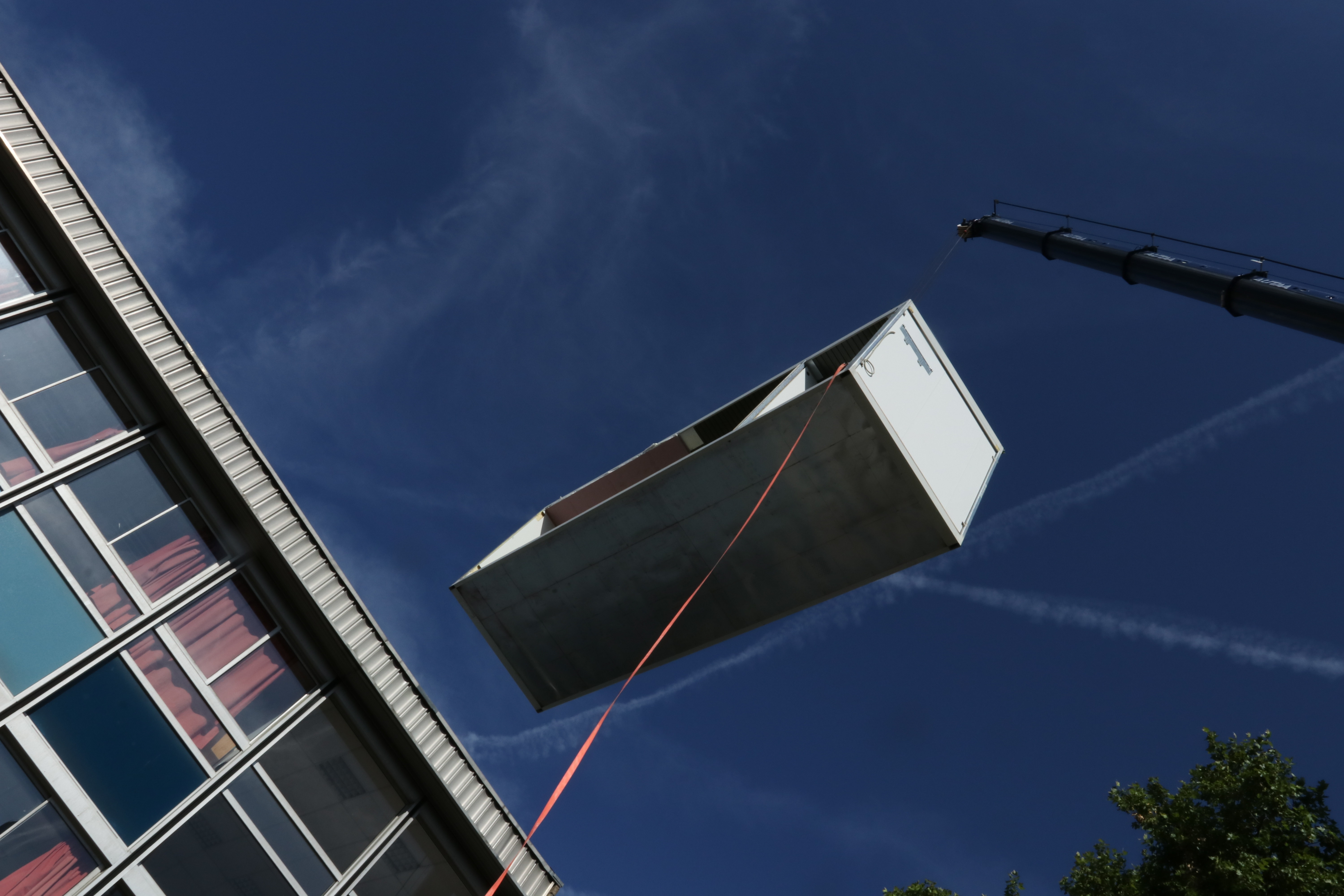Closing the loop...It's all about time and modular construction is part of the process
You wouldn’t buy a new book, take it home and throw it straight on the fire: well you might if it was “The Art of The Deal”, but let’s agree to make this is a Trump free zone for a moment. And it really is all about time, because that book you bought will eventually end up in a fire, adding to a landfill or being recycled. It’s just a question of when it happens, but where it happens couldn’t be more important at the moment. Burning it as waste poisons the air, burying it pollutes the earth but recycling will bring it back as something else (perhaps, who knows, another book). That’s what we mean by the Circular Economy: creating sustainable growth by using our finite resources to bring resources back. It’s all about closing the loop and thinking ahead…and it’s all about time.
Now more than ever there is a compelling need for waste and pollution to be designed out of our economic activities, preserving scarce resources in an effort to protect our environment.
And that applies in particular to the Construction Sector: more than a third of landfill waste can be sourced to building and demolition projects, with an average new build producing 1.8 kg of unrecycled waste for every square foot of floor space created. A 50,000 square foot office block will produce an average 100 tonnes of waste during construction, only 20% of which is recycled. And another 4,000 tonnes when it is demolished: steel, glass and wood that could ordinarily be recycled is impossible to recover because of cross contamination with other (non recyclable) waste products: so it all goes to landfill. It is appallingly wasteful and given the life expectancy of that office block is 50 years, waste on such a scale couldn’t be more significant for the life of our planet.
Modular Construction closes the loop on such a destructive cycle: individual components are manufactured indoors in controlled conditions, so the quality of the build is higher and waste levels inherently lower. Cyclical production to standard models also means materials left over after one project aren’t discarded at all, but used on the next development. Site assembly is three times faster than conventional methods because modular units are 80% complete when they get to site, meaning there’s less time for waste to build up. And taking all those factors together, that adds up to 90% less waste on site with modular than its conventional alternatives: no broken bricks, shredded plasterboard and rusting steel left behind, waiting to be carted off for burial in a landfill.
Because the final assembly on site is so much quicker, modular construction also creates less site traffic over a much shorter period (70% less in fact): and that means less diesel fumes polluting our air and less energy consumed in delivering the finished building.
And that’s not all: when a modular building comes to the end of its useful life, the individual components can be reused or recycled. There is no cross contamination with other non-recyclable materials, because for all practical purposes there is no demolition at all… no need to hammer the building down brick by brick because, module by module, it can be moved to a new location and re-assembled or individual modules re-used elsewhere.
Modulex is setting up the world's largest steel modular buildings factory based in India. It was established by Red Ribbon to harness the full potential of fast-evolving technologies and deliver at pace to meet the evolving needs of the community.
Modulex is setting up the world's largest steel modular buildings factory in India
Executive Overview
Global Housing needs have been driving an unprecedented move towards Modular Construction technologies, because they offer an opportunity to deliver at the speed, cost and quality required. But that’s only half the story…
Modular Construction is also more energy efficient and better aligned to the closed loop production methods that are proving so important for the preservation of limited resources. That’s why it will be so important for all our futures.






-1-3-1.jpg)

Leave a Reply